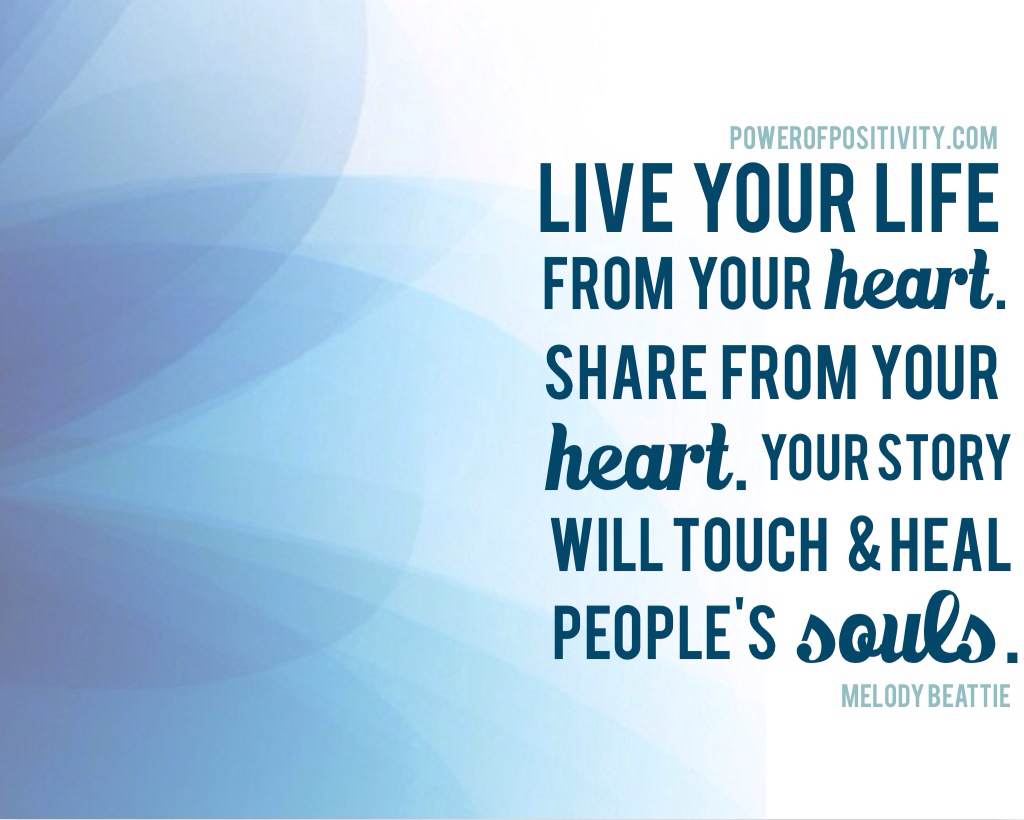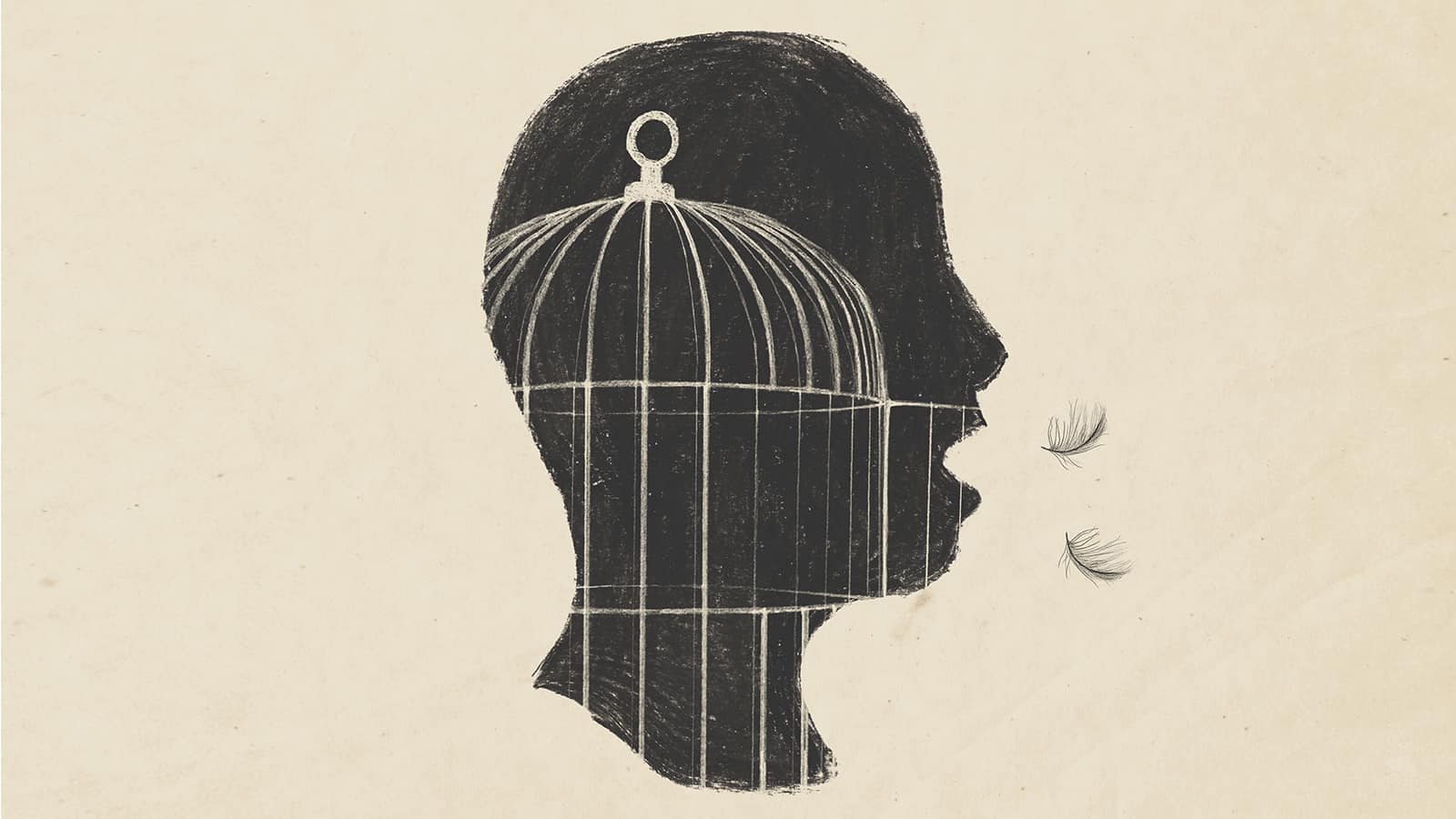When you experience something upsetting, do you tend to hold in your feelings and try to hide them? Do you attempt to bottle up your emotions in favor of acting like you’re fine, even when you’re definitely not?
This kind of behavior can be very harmful to you, and it can make your life worse. There are better ways to go about dealing with complicated feelings than by repressing them. Here are 3 reasons you should never bottle up your emotions and ways to express yourself instead of keeping it all inside!
Why You Should Never Bottle Up Your Emotions
Keep this advice in mind.
 1. Repressing Emotions Makes Them Stronger
1. Repressing Emotions Makes Them Stronger
A refusal to accept the negative emotions that you feel can actually cause them to become more overwhelming. When you repress those bad feelings, you’re not getting rid of them – just storing them further back in your head as they build and build unaddressed. They will come back to bite you later, or they may start bogging you down right away!
Studies have long found that expressing negative emotions may result in a more positive mental state. To reduce the impact of our worst feelings, voicing them openly and honestly (in the right situations, of course) can help reduce their severity and promote recovery from those feelings.
In terms of repressed emotions, the resulting strength increase in them can also cause:
· Increased Anxiety
The stress from the buildup of emotions may begin to take a toll on your stress levels, causing you to feel more anxious and uneasy.
· Mental Exhaustion
Dealing with overwhelming emotions that you don’t even realize are still affecting you can slowly but surely take a toll on your every move.
· Worsened Negativity
Whenever you experience a new bad emotion, you might feel them in a much more intense manner.
· Difficulty With Positive Thinking
Repressing emotions may cause that negativity to overwhelm you, leading to trouble being happy even in good times.
2. It Can Isolate You
People often worry that being open about emotions will cause others to dislike them. In reality, they should be worrying about it the other way around.
Even though people can’t read your mind, most have enough emotional intelligence and insightful empathy to subconsciously pick up negative emotions. People naturally, without thinking about it, move away from these kinds of “auras.”
Here are some specific ways that bottled-up emotions can isolate you:
· You Cut Yourself Off
Most people naturally start to cut people off – whether directly or indirectly – when they’re bottling up their feelings. You may think, “no one cares about me anyway,” and your behavior will let these thoughts seep through, leaving you lonely.
· You Lash Out
Bottling up emotions causes them to grow stronger, as we’ve already established. But you don’t know that, so you’ll act totally fine and normal until something triggers the release of those emotions. Then you’ll experience sudden outbursts over small issues, hurting those around you.
· You Are Uncomfortable Around People Who Are Struggling
Every human being experiences negative emotions, but when you’re bottling yours up, seeing other people healthily exhibit negative signs can make you nervous. You might even judge them, thinking that showing negative emotion is embarrassing.
· You Can Seem Two-Faced
Those who bottle up their emotions typically behave very differently by themselves than with others. While most wouldn’t notice this, those who catch on to these changes may view you as dishonest or not be trusted.
Being honest about your emotions can help make relationships stronger, not weaken them. Telling someone honestly and positively about how you feel can help rectify problems and grant them more insight into your moods and behavior.
3. Your Health Can Suffer
Emotional repression affects so much more than just your mental state and ability to maintain positive thinking or relationships. It can also genuinely take a toll on your physical health, and this has been studied and recorded for a long time. Here are some ways bottling things up might take a toll on your wellbeing:
· Digestive Trouble
You’re more likely to experience gut issues if you spend a lot of time dealing with negative emotions, especially if they involve stress, anxiety, and other similar problems.
· Unhealthy Weight Gain
The bottling up of emotion is often linked to poorer food and snacking choices, contributing to unhealthy forms of weight gain.
· Headaches
Regular headaches without any underlying health-related cause can often be traced back to emotional problems, including the chance you’ll bottle up your emotions.
· Decreased Lifespan
Due to the health issues caused by bottled up emotions, many people who repress their feelings experience a shorter lifespan overall.
· Cancer Risk
More studies are still needed to confirm this, but it’s worth noting that some evidence indicates that emotional repression may worsen the risk of cancer development.
· Bad Coping Mechanisms
To cope with the bottle-up feelings, you will have to turn to some methods that may not be the best for your health. This may include smoking, drinking, eating junk food, unsafe promiscuity, and substance abuse.
 Ways To Express Yourself
Ways To Express Yourself
Use these methods to express yourself. Don’t bottle up your feelings.
1. Write
The act of writing down your emotions sounds very simple, and yet few people realize just how much it can help them! Journaling, in particular, has been shown in multiple studies to have hugely positive results on overall mental and even physical health.
Writing can be therapeutic because no one is reading your words, so you’re free to say whatever you like. No one can judge you, and you don’t have to worry about sparing the feelings of others while carefully curating your words. So the next time you need to express yourself, try writing! Here are some tips for the most effective self-expression:
- Don’t try to stick to logical writing only; express your emotions as honestly as you feel them, even if it sounds childish or unreasonable to you and even if they’re unorganized.
- Elaborate on emotions; don’t just say something that made you feel sad. Elaborate on the situation and why it hurt you so much
- Don’t overthink your works. Just write what flows and don’t hold back.
- Optionally, you can reread your writing with a clearer head later to reflect on your emotions and how to do better or avoid future similar situations.
- If you decide to keep a regular journal, do not pressure yourself to write long passages every day.
2. Name Your Emotions
Sometimes the easiest way to express how you feel is to name those emotions! It sounds deceptively simple, but it can work wonders for your positive thinking. As has already been discussed, repressing emotions is terrible for your health and can make those feelings worse.
By naming what you feel, you are actively acknowledging your emotions, allowing them to be confronted and resolved. It’s actually not just a great way to start being honest with yourself, but it also helps make those emotions disappear healthily and naturally. Here are some tips for doing this effectively!
- Don’t be too generic; get specific about what you’re feeling instead of just saying, “I feel bad.”
- Don’t be afraid to dig a little deeper; you feel angry, but where is it coming from and why?
- Talking to yourself in an attempt to work through your emotions and name them accurately is not shameful or embarrassing; use that technique if it helps you!
You can practice naming emotions quietly in your head so you can continue this technique in public spaces, but do be aware that it may not be as effective!
3. Engage In Hobbies
Negative emotional energy can weigh heavily on you. It’s a good idea to find and engage in hobbies and activities to help expel and express that energy. Here are some examples of things you can do to express yourself healthily:
- Exercising
- Reading
- Dancing
- Making art
- Volunteering
- Hanging out with friends
- Singing
- Gardening
- Playing with pets
Allow yourself to feel your emotions and channel them into these activities. Not only do the activities themselves serve as great distractions, but you’ll also be sharpening skills and using your free time and negative emotions positively and productively.
If all else fails, know that it is also okay to take a break for a while. It’s fine to need to be alone and inactive with your emotions. Just keep it under a time limit, and don’t wallow for days on end!
4. Talk It Out
Talking to someone who you trust about your emotions is a great way to express yourself. Through listening, others can provide you with meaningful social contact, gentle validation of your emotions, and, if requested, outside perspectives and advice.
It’s useful, to begin with, to have someone else looking in on your situation from a more rational perspective. But even if you’re only looking to vent and not to receive advice, sometimes it’s just nice to feel listened to. Here are some tips for talking about it healthily and positively:
- It’s a good idea to let the person you’re talking to know your intentions first; do you want advice or just emotional support?
- Make sure you can truly trust the person that you’re speaking to; they should be able to keep secrets, refrain from being judgmental, and never use what you say against you in the future.
- Don’t be offended if someone you would like to talk to is not in the right mental space to listen to venting, offer support, or provide advice; emotional boundaries are important, and not everyone can provide what you seek!
Don’t have anyone close in your life that you feel comfortable talking to? Try dialing a help hotline or scheduling an appointment with a therapist, counselor, or similar mental health professional. While it may feel awkward at first, talking to professionals is a wonderful way to express yourself as they are trained to listen to you most effectively and provide assistance in safe and proven manners.
 Final Thoughts On Why You Should Never Bottle Up Your Emotions And Ways To Express Yourself
Final Thoughts On Why You Should Never Bottle Up Your Emotions And Ways To Express Yourself
Emotions can be difficult to manage, but that doesn’t mean that they should be hidden. By learning to express yourself and your feelings healthily, you’ll be able to handle your negative experiences without bottling up your emotions.


















